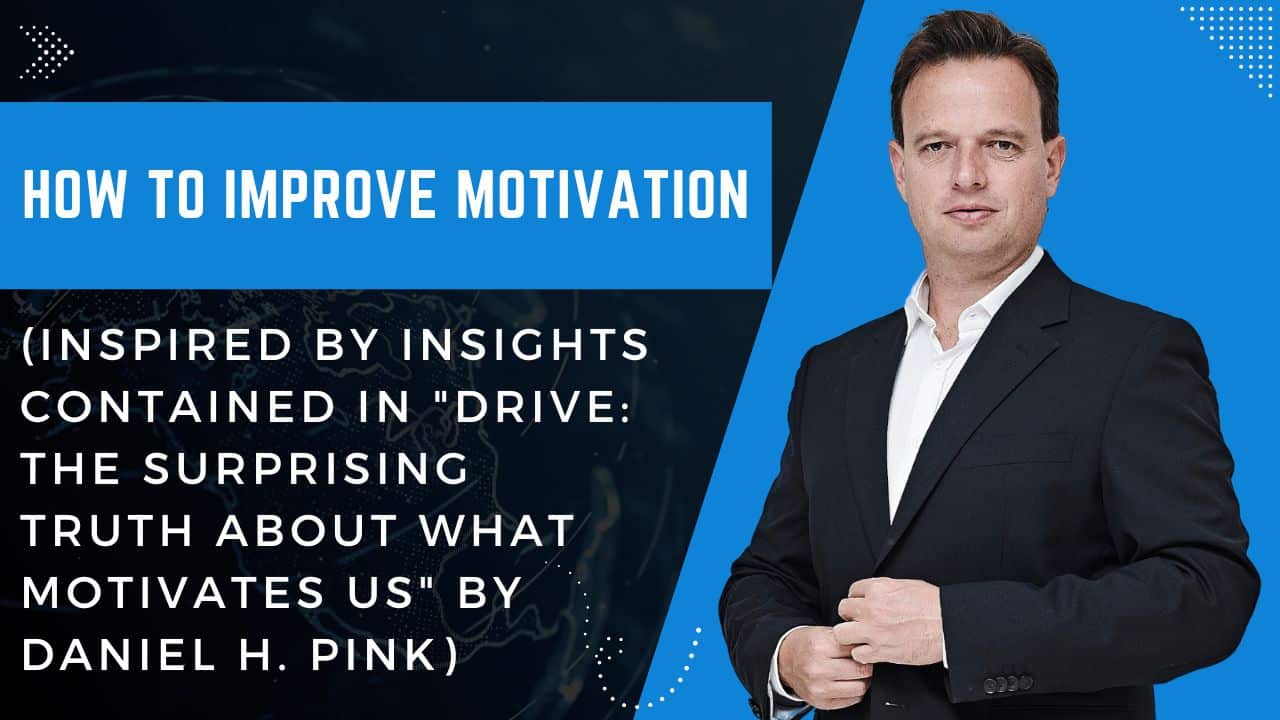
Drive: The Surprising Truth About What Motivates Us by Daniel H. Pink explores the science of motivation. It challenges traditional views on what drives human behaviour.
Pink identifies three core elements that foster intrinsic motivation:
- Autonomy: The desire to direct our own lives. Pink argues that people are more motivated when they have control over their work and the freedom to make decisions.
- Mastery: The urge to get better at something that matters. Pink emphasizes the importance of progress and improvement, highlighting that people are more motivated when engaged in tasks that develop their skills.
- Purpose: The yearning to do what we do in the service of something bigger than ourselves. A sense of purpose or a connection to a larger goal enhances motivation and fulfilment.
This workshop, based on the insights from "Drive: The Surprising Truth About What Motivates Us", helps participants understand and apply the principles of intrinsic motivation.
Here’s a full description of a simple 3-step workshop you can do in 3 hours (including breaks):
Unlocking Intrinsic Motivation in our Team/Organization
Workshop Objective
To unlock high performance in our team/organization by understanding and applying the principles of intrinsic motivation.
Step 1: Introduction to Motivation(30 minutes)
Objective
Understand the core elements of intrinsic motivation - autonomy, mastery, and purpose.
Activities
1. Presentation (15 minutes)
- Provide an overview of intrinsic versus extrinsic motivation (included in the free download).
- Explain the three elements of true motivation: autonomy, mastery, and purpose.
- Ask participants to call out real-life examples to illustrate these concepts.
2. Group Discussion (15 minutes)
- Break participants into small groups.
- Ask them to discuss and share personal experiences where they felt highly motivated.
- Have them identify elements of autonomy, mastery, and purpose in those experiences.
- Have each group present their findings.
Step 2: Practical Application(45 minutes)
Objective
Apply the concepts of autonomy, mastery, and purpose to real-life scenarios.
Activities
1. Autonomy Exercise (15 minutes)
- Ask participants to identify one task in their work or personal life where they could increase their autonomy.
- Have them brainstorm ways to gain more control over that task (e.g. setting their own deadlines, improving the process).
- Share ideas in pairs and discuss potential obstacles and solutions.
2. Mastery Exercise (15 minutes)
- Have participants select a skill or area they want to master.
- Have them create a plan outlining steps to improve in this area (e.g., taking a course, setting practice routines, seeking feedback).
- Pair up and share plans, offering feedback and additional ideas.
3. Purpose Exercise (15 minutes)
- Encourage participants to reflect on their work or personal goals and identify the larger purpose behind these activities.
- Write a brief purpose statement that connects their daily tasks to this larger goal.
- Share purpose statements with the group and discuss how this sense of purpose can enhance motivation.
Step 3: Creating a Motivation Plan(45 minutes)
Objective
Develop a personalized plan incorporating autonomy, mastery, and purpose into daily life.
Activities
1. Individual Planning (20 minutes)
- Provide a worksheet for participants to create a motivation plan (included in the free download).
- Sections of the worksheet:
- Autonomy: Identify specific tasks and how to increase autonomy in each.
- Mastery: Outline skills to develop and steps to achieve mastery.
- Purpose: Define the overarching purpose and connect it to daily activities.
2. Peer Review (15 minutes)
- Pair up participants to review each other's plans.
- Have them offer constructive feedback and suggestions for improvement to each other.
3. Group Sharing and Commitment (10 minutes)
- Have a few volunteers share their plans with the larger group.
- Encourage participants to commit to implementing their plans.
- Discuss ways to hold themselves accountable (e.g. regular check-ins with a partner, setting reminders).
Conclusion(10 minutes)
- Ask participants for their key insights from the workshop.
- Encourage participants to continue exploring and applying the principles of intrinsic motivation.
- Provide additional resources (e.g. books, articles, websites) for further learning.
This workshop allows participants to learn about the principles of intrinsic motivation and actively apply them to their own lives, fostering a deeper understanding and lasting change.
See you next week.

